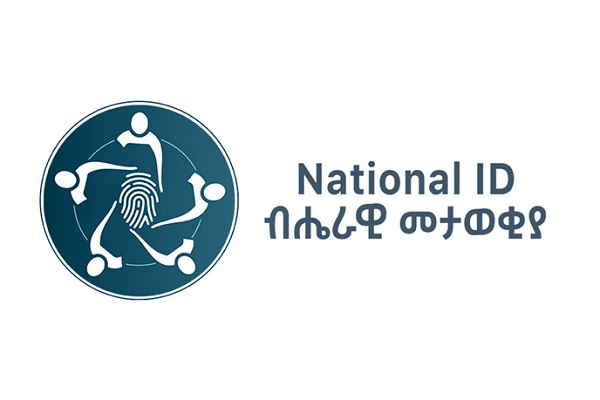
Global identity day (ID day) was celebrated on 16 September 2024 worldwide with the theme “Celebrating the right to be visible”. The day was mainly celebrated to develop awareness about role of Digital Id in the digital era. Countries across the world are implementing Digital ID following the development of digitalization. Accordingly, by the end of 2024, around five billion people are expected to own digital ID across the world. The development of Digital ID is easing service delivery and providing secured services for citizens. Digital ID also facilitates digitalization, E-services and also digital transactions. For example, countries like Estonia, which reached around 99% of their citizens with Digital ID, citizens can get up to 600 services using their E-ID.
Ethiopia started the implementation of National Digital ID, known as Fayda. Ethiopia started the process of initiating National ID in 2018 and from 2019 to 2021, Ethiopia developed technical and legal platforms to launch National Digital ID. Following the completion of technical and legal procedures, Ethiopia established the National ID Program Office (NIDP) in 2021. The national digital ID aims to ensure a robust, reliable and forward-looking digital identification platform for residents. Following establishing the National ID Program Office, Ethiopia launched National ID Program, named it Fayda, which is a 12 digit unique identification number.
According to NIDP, the Fayda ID serves as a unique proof of identity for individuals based on “one person, one identity” principle using the bi-ometric identifier technology. Since 2023, the official registration for National ID started implementing through campaign in Ethiopia and so far, according to NIDP, nearly 10 million citizens are registered for Fayda. NIDP also has a plan to provide Fayda ID for 90 million citizens in the coming three years.
Recently, Prime Minister Abiy Ahmed (PhD) stated that Digital ID is a crucial element in today’s digital technology era. As to the Premier, Digital ID is crucial to build digital economy and social capital. “Only full implementation of National ID for citizens would automatically raise Ethiopia’s GDP by 7% as it helps to formalize the informal market,” PM Abiy stated underscored the importance of Digital ID for development. Similarly, implementing Digital ID is a crucial element to control frauds in services, financial sector and areas. Considering the role of the socio-economic role of Digital ID, Ethiopia is working to reach 90 million citizens to provide Digital ID in the coming three years. Despite the campaigns to aware citizens to register for Digital ID and opening registration centers, including in collaboration with various sectors including banks and Ethio-Telecom, lack of awareness about the necessity of the digital ID remains a challenge so far.
In connection with the Global ID Day, the National ID Program Office of Ethiopia organized a High Level Webinar panel entitled “Transforming Governance through Digitalization: A step to Realize Digital Transformation,” last week.
During the webinar, Ethiopia’s National ID Program Office, Executive Director Yodahe Zemichael stated that National ID system becomes a crucial element in Ethiopia’s Digital Government Strategy (E-Go strategy). As to him, Digital ID is a foundational lair of E-GO strategy as it helps to increase e-service delivery, increase transparency, develop citizen participation, develop digital public infrastructure and to integrate other foundational systems in the digital service. Yodahe stated that National ID is important to create citizen friendly environment in the digital sector.
For his part, Abiyot Bayou (PhD), Senior Advisor to the Minister of Innovation and Technology of Ethiopia stated that National ID is the central tool in E-governance and providing digital services. According to Abiyot, Ethiopia started the first E-government strategy applied from 2011 to 2015 and the second E-government strategy from 2016 to 2020. Following the two consecutive strategies to develop E-governance in Ethiopia, currently Ethiopia prepares the third E-Government strategy to be implemented from 2025 to 2030, Abiyot said during the panel discussion. As to him, the new E-governance strategy has incorporated various new concepts like implementing the national enterprise architecture, developing Ethio connect as a data platform, having digital public infrastructure concepts as well as develop the goals. The E-government stack, for him, is expected to facilitate interactions among various applications.
According to Abiyot, during the previous E-governance strategies, the approach was focused on institutions to develop their own switch of applications. However, in the new E-governance strategy of the E-GO stake, it aims a user centric design. Hence, as to him in the GO stake, National ID is a central tool. “When the GO stake is in place, we will have the integration of payment system, ID card, the registration and other data exchange systems at the center,” Abiyot noted. Hence, Digital ID will facilitate the interaction among citizens and E-government system, which helps to realize socio-economic developments of the country in addition to its role for individuals to get secure services. The presence of National ID, according to Abiyot, will help a smooth interaction between the government and citizens in the E-governance system.
Having the ID in place as a government stake would also help to streamline data exchanges as well as protecting individuals’ data during e-government development. “So, the presence of Fayda Digital ID, in Ethiopia will expect to solve many problems,” Abiyot reiterated. As to the advisor, despite government already has started providing e-services online, lack of Digital ID remains a serious challenge to develop the services and as an identification number the services were providing using customers mobile numbers so as to identify the users. Hence, the presence of Fayda digital ID will help to have similes integration among E-government services.
In addition, Abiyot stated that Fayda would facilitate digital innovations and allow citizens to try different types of business models. Abiyot said that the new E-government strategy is on its final stage where the drafting process is already finalized and waiting for approval. For him, when the new E-governance strategy will be applied, Fayda will have a critical number of users and can facilitate an efficient E-governance service in Ethiopia.
Speaking to local media, Senior Advisor at National Digital ID Program Olana Abebe for his part stated that digital ID is a crucial tool to build digital economy. As Ethiopia is striving to build digital economy, implementing National ID is crucial to accelerate the development of digital services and digital transactions. “When we talk about Digital ID, we are talking about identifying one person as one using the bi-ometric systems and this is a vital tool in service citizens and providing inclusive social services in the education, health, justice and other sectors,” Olana said.
Olana said that despite Ethiopia is a late comer in implementing National Digital ID system, by taking experiences from other countries using its late comer as an advantage, Ethiopia is accelerating the implementation of the program. He stated that, with an ambitious plan, Ethiopia targets to provide Fayda number for 90 million citizens within the coming three years.
Considering the socio-economic development of Fayda, citizens are expected to register to secure the National ID. The NIDP is working with different stakeholders to facilitate the registration process and the campaign continues across the country.
BY DARGIE KAHSAY
THE ETHIOPIAN HERALD FRIDAY 20 SEPTEMBER 2024





